Former Minister of Humanitarian Affairs, Disaster Management, and Social Development, Sadiya Umar-Farouq, faces scrutiny as the Economic and Financial Crimes Commission (EFCC) delves into allegations of a staggering N37.1bn money laundering scheme during her tenure. The focus of the investigation centers around a contractor, James Okwete, through whom the funds are alleged to have been laundered. The unfolding drama brings to light the gravity of the accusations and raises questions about financial transparency within government departments.
In the absence of Sadiya Umar-Farouq ‘s appearance, the EFCC’s interrogation team, determined to uncover the truth, found themselves left waiting for over eight hours on Wednesday. The lack of official communication from the former minister regarding her non-attendance adds an air of mystery to the situation, leaving both investigators and the public in suspense.
Sadiya Umar-Farouq Unexplained Delay
As the clock ticked past 6 pm, the EFCC interrogation team reluctantly concluded their day’s work, convinced that Sadiya Umar-Farouq had no intention of participating in the inquiry. The unexplained delay raises eyebrows, prompting speculation about the motives behind the former minister’s decision to shun the invitation. Was it a strategic move, or does it hint at a larger web of complexities surrounding the allegations?
The unwillingness to offer an official explanation adds to the intrigue, leaving the public hungry for information on the unfolding investigation. The delay not only disrupts the investigative process but also fuels public concern about the transparency and accountability of high-ranking officials in managing public funds.
The Ongoing Investigation into Sadiya Umar-Farouq Affairs of the Past Administration
Despite the setback caused by Sadiya Umar-Farouq’s absence, the EFCC remains committed to uncovering the truth behind the alleged money laundering activities. The investigation is expected to delve deeper into the role of James Okwete as the suspected conduit for the funds. As public interest intensifies, the EFCC faces mounting pressure to ensure a thorough and impartial inquiry, underscoring the importance of accountability in government agencies.
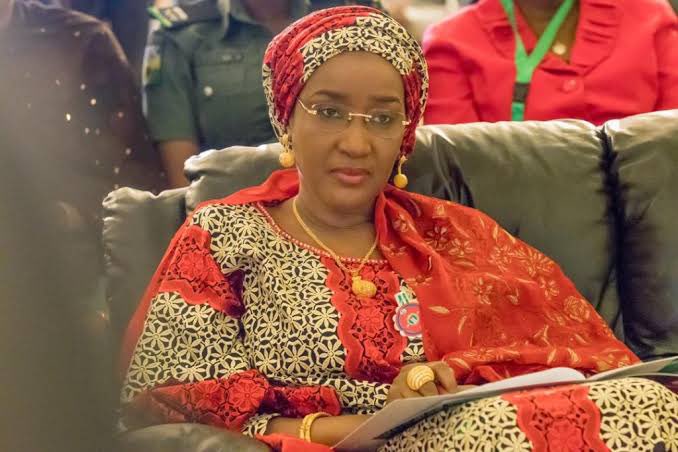
The unfolding developments mark a critical juncture in the investigation, with the public eager to see if Umar-Farouq will eventually comply with the EFCC’s summons or if further legal actions will be taken to compel her participation. As the case unfolds, it highlights the challenges and complexities surrounding corruption allegations within government departments.
Reactions and Speculations
News of Umar-Farouq’s absence from the EFCC’s proceedings has triggered varied reactions and speculations across the political spectrum. Opposition figures argue that the former minister’s actions suggest guilt, while supporters maintain her innocence, emphasizing the need for a fair and thorough investigation. The case’s political ramifications are becoming increasingly evident, with stakeholders closely monitoring the situation as it unfolds.
The absence of clear communication from Umar-Farouq’s camp further fuels speculations, contributing to a tense political atmosphere. The public’s perception of the unfolding events plays a crucial role in shaping the narrative surrounding the investigation, influencing opinions on government accountability and the fight against corruption.
Legal Implications and Precedents
As the investigation progresses, legal experts weigh in on the potential implications and precedents set by Sadiya Umar-Farouq‘s decision to snub the EFCC’s invitation. The move raises questions about the legal recourse available to compel high-ranking officials to cooperate with investigations into financial misconduct. The case could establish a precedent for future cases involving government officials, influencing the dynamics between accountability and political power.

Legal analysts analyze the potential legal consequences Sadiya Umar-Farouq might face for her non-compliance and the broader impact on the fight against corruption. The intersection of legal processes and political considerations adds a layer of complexity to an already intricate situation, amplifying the significance of this investigation beyond individual culpability.
Public Sentiment and the Call for Accountability
The unfolding events surrounding Sadiya Umar-Farouq‘s alleged involvement in money laundering have ignited a surge in public sentiment, with citizens demanding increased transparency and accountability in government affairs. Social media platforms buzz with discussions, reflecting a collective call for justice and a thorough investigation. The public’s watchful eye serves as a reminder of the growing demand for ethical governance and the consequences that public officials may face when entrusted with public resources.
The case becomes a litmus test for the government’s commitment to combating corruption and fostering accountability. As the public awaits further developments, the call for transparency resonates as a rallying cry for a system that upholds the principles of integrity and responsible governance.
Table of Contents
Discover more from OGM News NG
Subscribe to get the latest posts sent to your email.



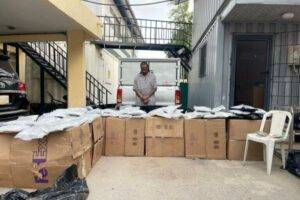


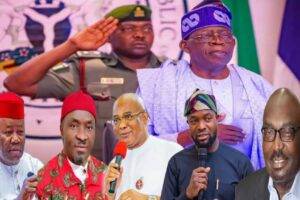




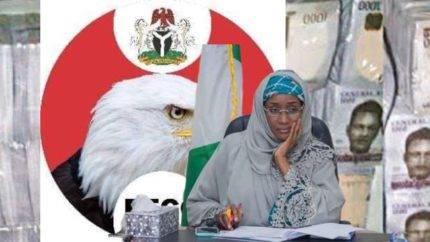
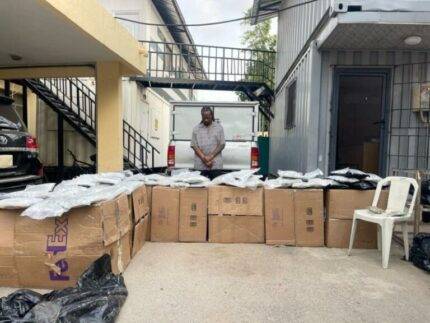


Hi there just wanted to give you a quick heads up and let you know a few of the images aren’t loading correctly. I’m not sure why but I think its a linking issue. I’ve tried it in two different internet browsers and both show the same outcome.
thanks
Some times its a pain in the ass to read what people wrote but this web site is very user friendly ! .
We appreciate that.